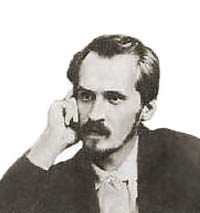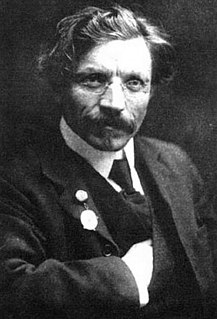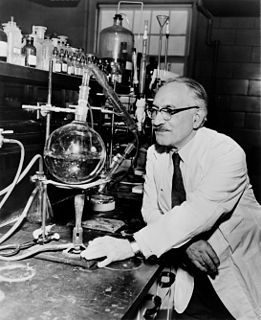 W
WGrigory Borisovich Adamov was a Soviet science fiction writer, best known for his novels Conquerors of the Underground (1937), The Mystery of the Two Oceans (1939) and The Ousting of the Ruler (1946).
 W
WSolomon Naumovich Rabinovich, better known under his pen name Sholem Aleichem, was a leading Yiddish author and playwright. The 1964 musical Fiddler on the Roof, based on his stories about Tevye the Dairyman, was the first commercially successful English-language stage production about Jewish life in Eastern Europe. The Hebrew phrase שלום עליכם literally means "[May] peace [be] upon you!", and is a greeting in traditional Hebrew and Yiddish.
 W
WMeir Balaban or Majer Samuel Bałaban was one of the most outstanding historians of Polish and Galician Jews, and the founder of Polish Jewish historiography.
 W
WLeón Dujovne was an Argentine writer, philosopher, essayist and journalist.
 W
WEduard Yefimovich Gufeld was a Soviet International Grandmaster of chess, and a chess author.
 W
WZvi-Gersh Preigerzon was a Ukrainian Jewish author who specialized in historical prose of a historically fictional nature. The author wrote his books in the Original Hebrew while in the Soviet Union - which caused his arrest. Preigerzon was also a scientist and inventor in the mineral processing field. Further recognized for his scientific works by being named Dean of the Moscow State Mining University.
 W
WYehoshua Ḥana Rawnitzki was a Hebrew publisher, editor, and collaborator of Hayim Nahman Bialik.
 W
WEli Schechtman was a Yiddish writer. He defined the purpose of his work as follows: "My mission in Jewish literature was and still is ... to show to those who negate the power of the Galut, how mighty – spiritually and physically – were the generations who grew up in that Galut, even in the most godforsaken places."
 W
WChava Shapiro, known also by the pen name Em Kol Chai, was a Volhynian Jewish writer, critic, and journalist. A pioneer of Hebrew women's literature and feminist literary criticism, Shapiro was among the most prolific of the diasporic women writers of Hebrew in the early twentieth century.
 W
WSelman Abraham Waksman was a Ukrainian-born Jewish-American inventor, biochemist and microbiologist whose research into the decomposition of organisms that live in soil enabled the discovery of streptomycin and several other antibiotics. A professor of biochemistry and microbiology at Rutgers University for four decades, he discovered a number of antibiotics, and he introduced procedures that have led to the development of many others. The proceeds earned from the licensing of his patents funded a foundation for microbiological research, which established the Waksman Institute of Microbiology located on the Rutgers University Busch Campus in Piscataway, New Jersey (USA). In 1952, he was awarded the Nobel Prize in Physiology or Medicine for "ingenious, systematic and successful studies of the soil microbes that led to the discovery of streptomycin." Waksman and his foundation later were sued by Albert Schatz, one of his PhD students and first discoverer of streptomycin, for minimizing Schatz's role in the discovery of streptomycin.
 W
WYa'akov Zerubavel was a Jewish Zionist activist, writer, publisher, and one of the leaders of the Poale Zion movement.
 W
WGregory Zilboorg was a psychoanalyst and historian of psychiatry who is remembered for situating psychiatry within a broad sociological and humanistic context in his many writings and lectures.